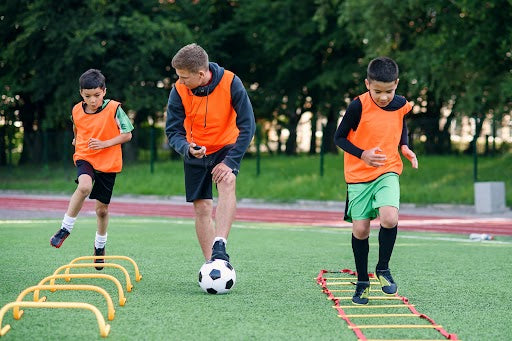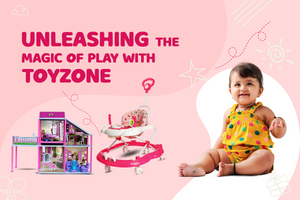
The Essential Role of Physical Activity in Your Child's Development
A parent's main goal is to ensure that their child has an intelligent, creative, and resilient future. But what if the key to unlocking your child's full potential was as simple as letting them run around in the backyard?
Physical activity is an essential element of children's overall health and development. It provides many benefits, from improving physical fitness and building strong bones and muscles to enhancing mental well-being and cognitive development. Here's why physical activity is paramount for your child's growth:
1. Boosts Physical Health:
The first benefit is the most apparent—improved physical health. Physical activity strengthens a child's heart, lungs, bones, and muscles. Also, it reduces the risk of chronic diseases such as obesity, heart disease, and diabetes. Even the American Heart Association recommends that children and adolescents must engage in at least 60 minutes of physical activity daily.
2. Enhances Cognitive Function:
There's a wealth of scientific evidence that physical activity enhances cognitive functioning in children. For example, it improves concentration, memory, and creativity. A 2018 study published in Paediatrics found that more active children show greater attention, have quicker cognitive processing, and achieve higher scores on standardized academic tests.
3. Develops Social Skills:
Physical activity often involves interaction with others, which can help children learn vital social skills. For instance, a soccer game in the park allows children to get their heart rates up and teaches them teamwork, communication, and conflict resolution.
4. Promotes Emotional Well-being:
Children can also benefit from physical activity by improving mood and reducing anxiety and stress symptoms. So, it's no surprise that physically active children often have better emotional health. According to a journal article published in 2019, teens who participate in sports experience lower levels of depression and anxiety.
5. Instils Healthy Habits:
Children who are involved in regular physical activity are likelier to maintain these healthy habits into adulthood. For example, a child who grows up playing tennis might be more likely to join a local tennis club or play a quick game with friends as an adult.
The Real-World Benefits
Still not convinced?
Let's consider the story of two families.
Family A encourages their child to play outside, engage in sports, and participate in family bike rides. As a result, this child is physically healthier and tends to perform better academically, enjoys interacting with peers, and is generally happier.
On the other hand, Family B's child spends most of their time indoors, often in front of a screen. This sedentary lifestyle can lead to a higher risk of obesity and other health issues. This child also struggles with focus in school and experiences more social and emotional difficulties.
The lesson here is clear:
A physically active child is likelier to grow into a healthier, happier, and more successful adult.






